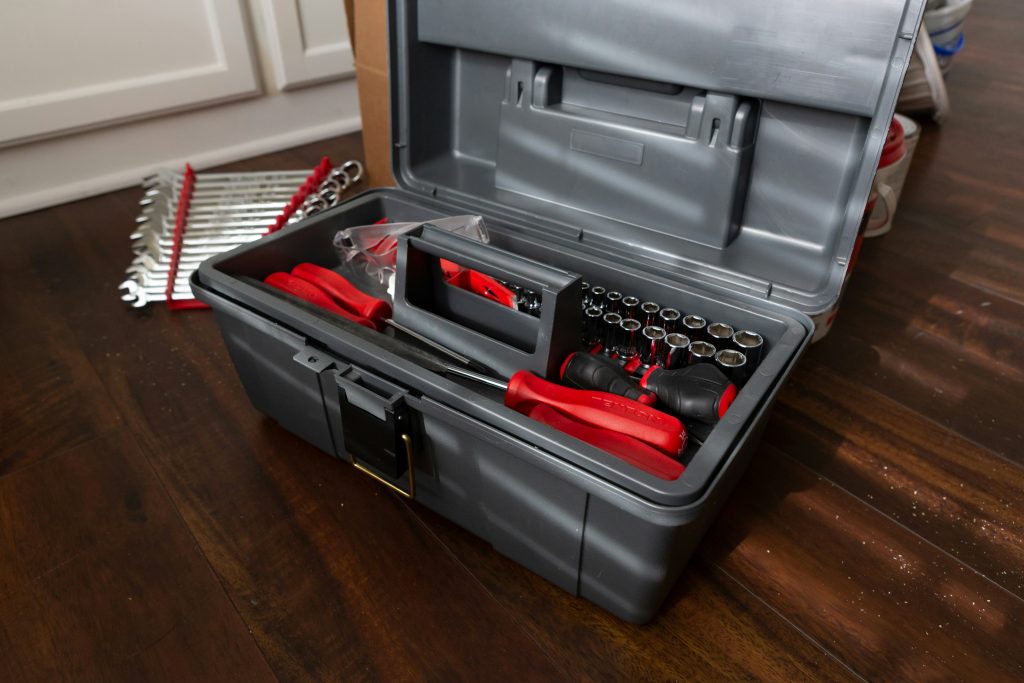When bad weather strikes—whether it’s an ice storm, hurricane, or severe thunderstorm—having a generator can be a lifesaver for your household. Power outages during these events are not only inconvenient but can disrupt safety, food preservation, medical needs, and communication. At Dickerson Agency, Inc., we care about your safety and well-being, and in this post, we’ll walk you through how a generator can help your family stay prepared, along with essential safety tips to maintain your generator for long-term use.

The Importance of Generators During Severe Weather
During bad weather events, power outages are often inevitable. While some outages are brief, others may last for days, leaving you without electricity to power crucial appliances and systems. Here are just a few ways a generator can make a significant difference during emergencies:
- Keeping Food Fresh: Refrigerators and freezers can only keep food cold for about 4 hours during a power outage. Generators ensure that your perishable food stays safe to eat, preventing waste and reducing the risk of foodborne illness.
- Powering Medical Devices: For families with members dependent on medical devices—such as oxygen machines or insulin pumps—access to uninterrupted power is essential. A generator can be the difference between life and a medical emergency.
- Maintaining Communication: In bad weather, staying informed about the latest updates is crucial. Generators allow you to charge phones, radios, and other communication devices, ensuring you remain connected to loved ones and emergency services.
- Heating and Cooling Systems: Extreme temperatures—either too hot or too cold—can be dangerous. A generator helps you power space heaters or fans to maintain a safe environment in your home.
Types of Generators to Consider
There are several types of generators, and choosing the right one depends on your household’s needs.
- Portable Generators: These are smaller, more affordable units that are easy to move. They are great for short-term power outages but require manual refueling with gasoline or propane.
- Standby Generators: These are permanently installed outside your home and automatically kick in when the power goes out. They run on natural gas or propane and are ideal for longer outages, especially in hurricane-prone areas.
- Inverter Generators: Quieter and more fuel-efficient, inverter generators are a great choice for powering sensitive electronics like laptops and medical devices.
Generator Safety Tips: Using and Maintaining Your Generator
While generators are incredibly useful, they must be used correctly to prevent safety hazards like carbon monoxide poisoning, fires, and electrical shocks. Here are our top safety and maintenance tips to ensure safe usage.

1. Never Use a Generator Indoors
Generators produce carbon monoxide, a colorless, odorless gas that can be deadly. Always operate your generator outdoors in a well-ventilated area at least 20 feet from your home, with the exhaust directed away from doors and windows.
2. Use the Right Extension Cords
If you need to run power from your generator into your home, make sure to use heavy-duty extension cords designed for outdoor use. Ensure they are rated for the power load you need to avoid overheating or electrical shocks.
3. Store Fuel Safely
Keep fuel in approved containers and store them in a cool, dry place away from your home. Avoid storing large amounts of fuel indoors, as it presents a fire hazard. Never refuel your generator while it’s running or still hot.
4. Perform Regular Maintenance
Check your generator regularly to ensure it’s ready to go when you need it. This includes:
- Running the generator once a month for 15-30 minutes to keep it in working order.
- Changing the oil after every 50-60 hours of use.
- Inspecting and cleaning the air filter periodically.
- Checking fuel levels and replacing old fuel with fresh gasoline or propane.
5. Avoid Backfeeding Your Home
Backfeeding occurs when you plug the generator directly into a wall outlet, which can send electricity back into the power grid. This is extremely dangerous for utility workers and your household. Instead, use a transfer switch installed by a licensed electrician to safely power your home.
Best Practices for Generator Use in Bad Weather
Planning ahead ensures you can use your generator effectively when a storm hits.
1. Create a Generator Emergency Plan
Identify which appliances and systems you’ll need to power in an emergency, such as refrigerators, medical devices, and communication tools. Make sure you know how to set up the generator quickly when needed.
2. Keep Extra Fuel on Hand
During major storms, fuel can be in short supply. Keep enough fuel on hand to last several days, and always have some extra stored safely.
3. Test Your Generator Before the Storm
Perform a test run to make sure everything is in working order before bad weather hits. You don’t want to discover issues with your generator after the power goes out.
Protecting Your Home and Family with Insurance
While generators can offer peace of mind during a power outage, it’s important to protect your home against the risks associated with extreme weather events. At Dickerson Agency, Inc., we offer homeowners insurance policies that cover damage caused by ice storms, hurricanes, and other severe weather events. We can also help you explore coverage options for your generator to ensure it’s protected against theft or damage.
Stay Safe and Be Prepared
A generator is a valuable tool for maintaining safety, comfort, and communication during extreme weather events. By choosing the right type of generator for your needs and following best practices for maintenance and safety, you’ll be well-prepared to handle power outages.
At Dickerson Agency, Inc., we’re here to help you stay safe and secure in every season. If you have questions about homeowners insurance or need advice on storm preparation, feel free to reach out to our team.
Stay safe and stay prepared!
With the right generator and a solid emergency plan, you’ll be ready to face any storm with confidence. Let us know how we can help you prepare—because protecting what matters most is what we do best.
